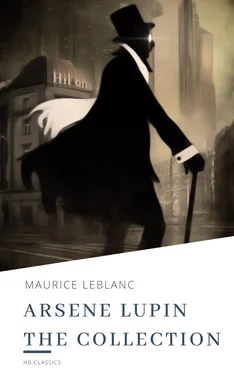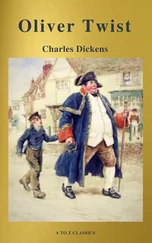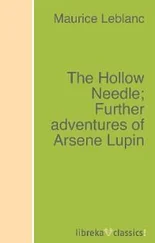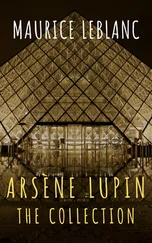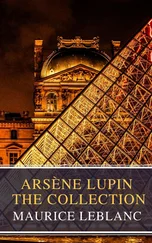"But it's your photograph!"
"It's my photograph, but it was not sent by me. I was not even aware of its existence. It was taken, without my knowledge, in the ruins of Ambrumesy, doubtless by the examining-magistrate's clerk, who, as you know, was an accomplice of Arsene Lupin's."
"And then?"
"Then this photograph became the passport, the talisman, by means of which they obtained my father's confidence."
"But who? Who was able to get into my house?"
"I don't know, but my father fell into the trap. They told him and he believed that I was in the neighborhood, that I was asking to see him and that I was giving him an appointment at the Golden Lion."
"But all this is nonsense! How can you assert—?"
"Very simply. They imitated my writing on the back of the photograph and specified the meeting-place: Valognes Road, 3 kilometres 400, Lion Inn. My father came and they seized him, that's all."
"Very well," muttered Froberval, dumbfounded, "very well. I admit it—things happened as you say—but that does not explain how he was able to leave during the night."
"He left in broad daylight, though he waited until dark to go to the meeting-place."
"But, confound it, he didn't leave his room the whole of the day before yesterday!"
"There is one way of making sure: run down to the dockyard, Froberval, and look for one of the men who were on guard in the afternoon, two days ago.—Only, be quick, if you wish to find me here."
"Are you going?"
"Yes, I shall take the next train back."
"What!—Why, you don't know—your inquiry—"
"My inquiry is finished. I know pretty well all that I wanted to know. I shall have left Cherbourg in an hour."
Froberval rose to go. He looked at Beautrelet with an air of absolute bewilderment, hesitated a moment and then took his cap:
"Are you coming, Charlotte?"
"No," said Beautrelet, "I shall want a few more particulars. Leave her with me. Besides, I want to talk to her. I knew her when she was quite small."
Froberval went away. Beautrelet and the little girl remained alone in the tavern smoking room. A few minutes passed, a waiter entered, cleared away some cups and left the room again. The eyes of the young man and the child met; and Beautrelet placed his hand very gently on the little girl's hand. She looked at him for two or three seconds, distractedly, as though about to choke. Then, suddenly hiding her head between her folded arms, she burst into sobs.
He let her cry and, after a while, said:
"It was you, wasn't it, who did all the mischief, who acted as go- between? It was you who took him the photograph? You admit it, don't you? And, when you said that my father was in his room, two days ago, you knew that it was not true, did you not, because you yourself had helped him to leave it—?"
She made no reply. He asked:
"Why did you do it? They offered you money, I suppose—to buy ribbons with a frock—?"
He uncrossed Charlotte's arms and lifted up her head. He saw a poor little face all streaked with tears, the attractive, disquieting, mobile face of one of those little girls who seem marked out for temptation and weakness.
"Come," said Beautrelet, "it's over, we'll say no more about it. I will not even ask you how it happened. Only you must tell me everything that can be of use to me.—Did you catch anything—any remark made by those men? How did they carry him off?"
She replied at once:
"By motor car. I heard them talking about it—"
"And what road did they take?"
"Ah, I don't know that!"
"Didn't they say anything before you—something that might help us?"
"No—wait, though: there was one who said, 'We shall have no time to lose—the governor is to telephone to us at eight o'clock in the morning—'"
"Whereto?"
"I can't say.—I've forgotten—"
"Try—try and remember. It was the name of a town, wasn't it?"
"Yes—a name—like Chateau—"
"Chateaubriant?—Chateau-Thierry?—"
"No-no—"
"Chateauroux?"
"Yes, that was it—Chateauroux—"
Beautrelet did not wait for her to complete her sentence. Already he was on his feet and, without giving a thought to Froberval, without even troubling about the child, who stood gazing at him in stupefaction, he opened the door and ran to the station:
"Chateauroux, madame—a ticket for Chateauroux—"
"Over Mans and Tours?" asked the booking-clerk.
"Of course—the shortest way. Shall I be there for lunch?"
"Oh, no!"
"For dinner? Bedtime—?"
"Oh, no! For that, you would have to go over Paris. The Paris express leaves at nine o'clock. You're too late—"
It was not too late. Beautrelet was just able to catch the train.
"Well," said Beautrelet, rubbing his hands, "I have spent only two hours or so at Cherbourg, but they were well employed."
He did not for a moment think of accusing Charlotte of lying. Weak, unstable, capable of the worst treacheries, those petty natures also obey impulses of sincerity; and Beautrelet had read in her affrighted eyes her shame for the harm which she had done and her delight at repairing it in part. He had no doubt, therefore, that Chateauroux was the other town to which Lupin had referred and where his confederates were to telephone to him.
On his arrival in Paris, Beautrelet took every necessary precaution to avoid being followed. He felt that it was a serious moment. He was on the right road that was leading him to his father: one act of imprudence might ruin all.
He went to the flat of one of his schoolfellows and came out, an hour later, irrecognizable, rigged out as an Englishman of thirty, in a brown check suit, with knickerbockers, woolen stockings and a cap, a high-colored complexion and a red wig. He jumped on a bicycle laden with a complete painter's outfit and rode off to the Gare d'Austerlitz.
He slept that night at Issoudun. The next morning, he mounted his machine at break of day. At seven o'clock, he walked into the Chateauroux post-office and asked to be put on to Paris. As he had to wait, he entered into conversation with the clerk and learnt that, two days before, at the same hour, a man dressed for motoring had also asked for Paris.
The proof was established. He waited no longer.
By the afternoon, he had ascertained, from undeniable evidence, that a limousine car, following the Tours road, had passed through the village of Buzancais and the town of Chateauroux and had stopped beyond the town, on the verge of the forest. At ten o'clock, a hired gig, driven by a man unknown, had stopped beside the car and then gone off south, through the valley of the Bouzanne. There was then another person seated beside the driver. As for the car, it had turned in the opposite direction and gone north, toward Issoudun.
Beautrelet easily discovered the owner of the gig, who, however, had no information to supply. He had hired out his horse and trap to a man who brought them back himself next day.
Lastly, that same evening, Isidore found out that the motor car had only passed through Issoudun, continuing its road toward Orleans, that is to say, toward Paris.
From all this, it resulted, in the most absolute fashion, that M. Beautrelet was somewhere in the neighborhood. If not, how was it conceivable that people should travel nearly three hundred miles across France in order to telephone from Chateauroux and next to return, at an acute angle, by the Paris road?
This immense circuit had a more definite object: to move M. Beautrelet to the place assigned to him.
"And this place is within reach of my hand," said Isidore to himself, quivering with hope and expectation. "My father is waiting for me to rescue him at ten or fifteen leagues from here. He is close by. He is breathing the same air as I."
He set to work at once. Taking a war-office map, he divided it into small squares, which he visited one after the other, entering the farmhouses making the peasants talk, calling on the schoolmasters, the mayors, the parish priests, chatting to the women. It seemed to him that he must attain his end without delay and his dreams grew until it was no longer his father alone whom he hoped to deliver, but all those whom Lupin was holding captive: Raymonde de Saint- Veran, Ganimard, Holmlock Shears, perhaps, and others, many others; and, in reaching them, he would, at the same time, reach Lupin's stronghold, his lair, the impenetrable retreat where he was piling up the treasures of which he had robbed the wide world.
Читать дальше
